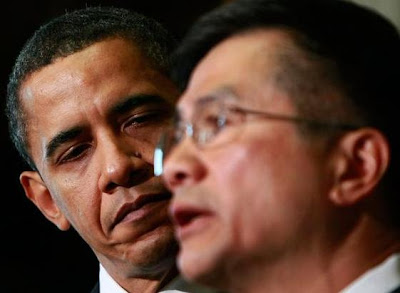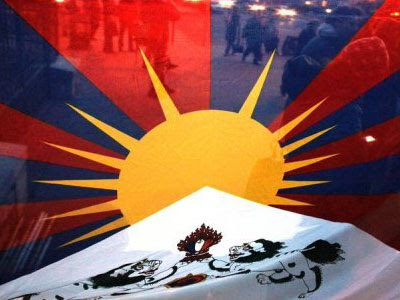 |
| Tsai Ing-wen cast her vote shortly before 10 am in a suburb of Taipei, AFP |
Taipei - Taiwan began voting on Saturday in a tight presidential election that will decide who will run the island and manage crucial ties with China over the next four years.
Polls opened at 08:00 for the island's 18.1 million eligible voters in an election where the choice is essentially between pro-China incumbent Ma Ying-jeou and his main challenger Tsai Ing-wen, a China-sceptic.
"I voted for Ma because I am doing business with China and I often travel there," said businesswoman Ane Wei as she left a polling station in downtown Taipei.
"It'd be more convenient for me and good for my business if he remains in office."
Ruby Yang, an office worker, said she had cast her ballot in favour of Tsai "because I want to see the first female president in Taiwan".
Tsai cast her vote shortly before 10:00 in a suburb of Taipei, and Ma was expected to vote shortly afterwards.
For the past ten days, no opinion polls have been allowed, but the final surveys published last week showed a race too close to call, with Ma of the Kuomintang (KMT) party leading Tsai by as little as three percentage points.
Beijing and Washington are watching closely, as victory for Ma, 61, would likely be seen as a renewed mandate for policies that have brought about the most dramatic thaw in ties with the mainland in over 60 years.
"The reason why the Chinese mainland is so concerned about the Taiwan election is because we are worried that the idea of 'Taiwan independence' will be further spread by the process, as it was in the past," the state-controlled Chinese paper Global Times said on Friday.
Boosting trade
But it went on to say that "with democracy developing, rationality is growing while extremism is on the wane in Taiwan. In the future, the rotation of ruling parties will have a smaller influence on Taiwan's policymaking".
Ma was elected four years ago on a promise to improve Taiwan's economy by boosting trade and travel links with China and the key achievement of his term is a sweeping trade pact signed in 2010.
A win for 55-year-old Tsai could usher in a period of uncertainty in ties with China, as her Democratic Progressive Party (DPP) has traditionally favoured distancing the island from the mainland.
China and Taiwan have been governed separately since the end of a civil war in 1949, but Beijing still claims sovereignty over the island, and has vowed to get it back, even if it must go to war to make it happen.
The United States, too, is keeping a close eye on the election, hoping the outcome will not upset the stability that the strategically vital Taiwan Straits area has experienced since Ma assumed power in 2008.
Further complicating the race is the third candidate, former KMT heavyweight James Soong, 69, who could cost Ma the result by taking crucial votes away.
Officials believe a relatively large proportion of the eligible voters will cast their ballots because of the tightness of the race.
Both Ma and Tsai staged huge rallies in Taipei on Friday to whip up support and try to win the undecided voters who will decide the outcome.
Chang Poh-ya, chairwoman of the Central Election Commission, said on Friday she expected the turnout rate to reach about 80%, compared with just over 76% in the 2008 vote.
The nearly 15 000 polling stations will close at 16:00. The presidential vote coincides with a poll for Taiwan's 113-member parliament, where the KMT currently has a majority.
Polls opened at 08:00 for the island's 18.1 million eligible voters in an election where the choice is essentially between pro-China incumbent Ma Ying-jeou and his main challenger Tsai Ing-wen, a China-sceptic.
"I voted for Ma because I am doing business with China and I often travel there," said businesswoman Ane Wei as she left a polling station in downtown Taipei.
"It'd be more convenient for me and good for my business if he remains in office."
Ruby Yang, an office worker, said she had cast her ballot in favour of Tsai "because I want to see the first female president in Taiwan".
Tsai cast her vote shortly before 10:00 in a suburb of Taipei, and Ma was expected to vote shortly afterwards.
For the past ten days, no opinion polls have been allowed, but the final surveys published last week showed a race too close to call, with Ma of the Kuomintang (KMT) party leading Tsai by as little as three percentage points.
Beijing and Washington are watching closely, as victory for Ma, 61, would likely be seen as a renewed mandate for policies that have brought about the most dramatic thaw in ties with the mainland in over 60 years.
"The reason why the Chinese mainland is so concerned about the Taiwan election is because we are worried that the idea of 'Taiwan independence' will be further spread by the process, as it was in the past," the state-controlled Chinese paper Global Times said on Friday.
Boosting trade
But it went on to say that "with democracy developing, rationality is growing while extremism is on the wane in Taiwan. In the future, the rotation of ruling parties will have a smaller influence on Taiwan's policymaking".
Ma was elected four years ago on a promise to improve Taiwan's economy by boosting trade and travel links with China and the key achievement of his term is a sweeping trade pact signed in 2010.
A win for 55-year-old Tsai could usher in a period of uncertainty in ties with China, as her Democratic Progressive Party (DPP) has traditionally favoured distancing the island from the mainland.
China and Taiwan have been governed separately since the end of a civil war in 1949, but Beijing still claims sovereignty over the island, and has vowed to get it back, even if it must go to war to make it happen.
The United States, too, is keeping a close eye on the election, hoping the outcome will not upset the stability that the strategically vital Taiwan Straits area has experienced since Ma assumed power in 2008.
Further complicating the race is the third candidate, former KMT heavyweight James Soong, 69, who could cost Ma the result by taking crucial votes away.
Officials believe a relatively large proportion of the eligible voters will cast their ballots because of the tightness of the race.
Both Ma and Tsai staged huge rallies in Taipei on Friday to whip up support and try to win the undecided voters who will decide the outcome.
Chang Poh-ya, chairwoman of the Central Election Commission, said on Friday she expected the turnout rate to reach about 80%, compared with just over 76% in the 2008 vote.
The nearly 15 000 polling stations will close at 16:00. The presidential vote coincides with a poll for Taiwan's 113-member parliament, where the KMT currently has a majority.
News by News24
Read current news at http://bbc-cnn-worldnews.blogspot.com






